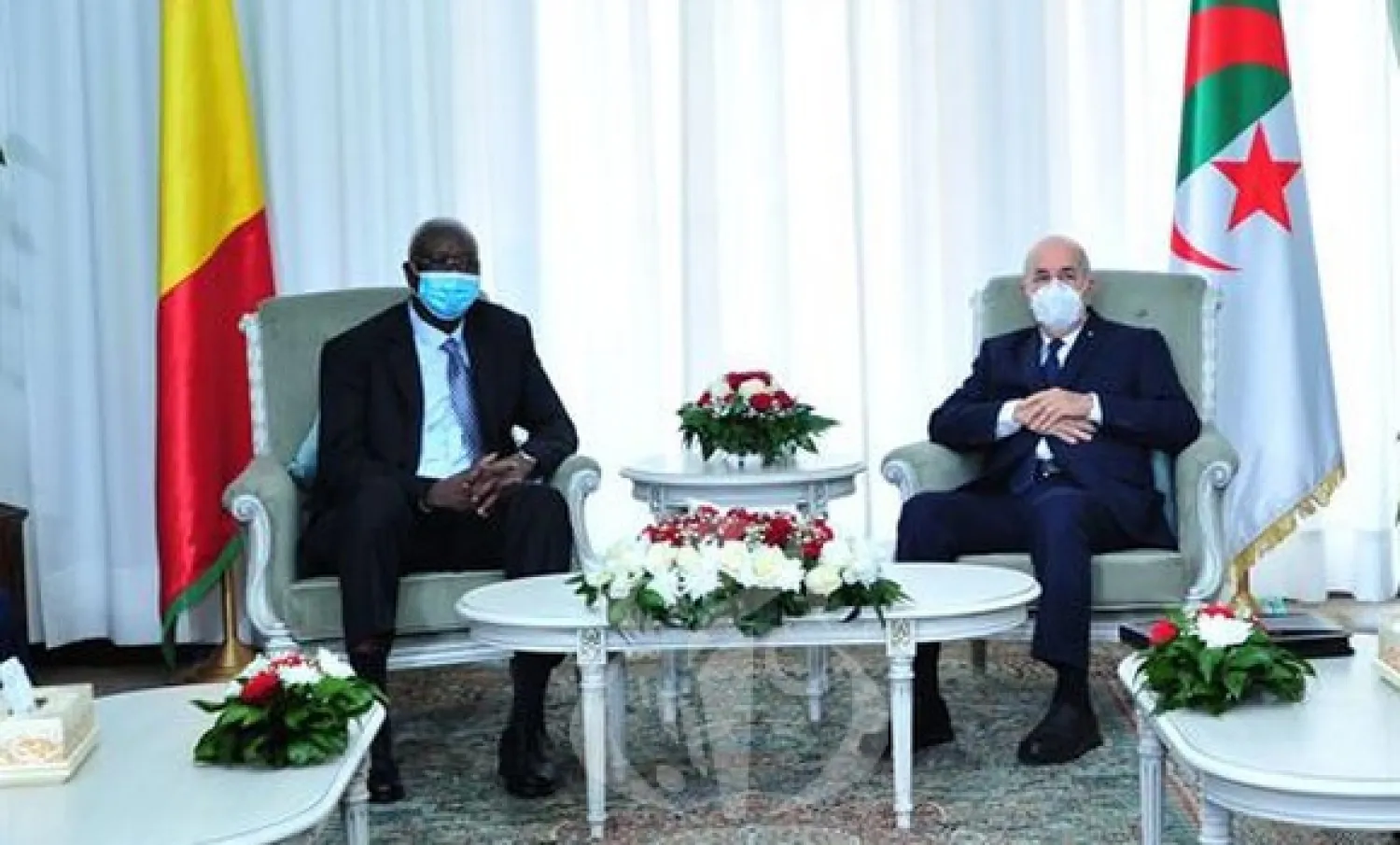Algerian President Abdelmadjid Tebboune on Sunday held talks in the capital Algiers with visiting Malian President Bah N'Daw.
The two presidents discussed bilateral ties, security issues, and the stalled 2015 Peace Agreement signed with the opposition.
The meeting was attended by Interior Minister Kamal Beldjoud and Foreign Minister Sabri Boukadoum, according to informed sources, who confirmed that the talks addressed a wide range of security matters.
The sources said that the officials discussed the role of the French military forces in the al-Sahel region and their inability to prevent armed extremist organizations from attacking state targets.
They also discussed the issue of paying ransoms in al-Sahel for the liberation of hostages abducted by terrorist groups.
France and Italy recently paid a ransom to terrorists in exchange for the release of four Europeans. Both Paris and Rome pressured the Malian government to release dozens of militants as part of the same deal.
Earlier this year, Algerian Prime Minister Abdelaziz Djerad sounded alarm about reported ransoms paid to “terrorist groups” to free hostages.
“Algeria notes, with great concern, continued transfers to terrorist groups of huge sums of money as ransoms to free hostages,” Djerad said, warning that this approach undermines Algeria’s counter-terrorism efforts.
In the past two months, the Algerian Defense Ministry arrested two militants who entered the country from Mali, saying they belong to the prisoners released by Bamako as part of the hostage deal.
The French Foreign Minister, Jean-Yves Le Drian, denied Paris’s involvement, asserting it is not possible to negotiate with militant organizations that have been waging an insurgency in the Sahel region for eight years.
Le Drian distinguished between engaging with armed groups which had signed peace accords, and “terror groups.”
The same sources quoted the president of Mali as saying that the Azawad rebels have been entrenched in their areas since the beginning of the armed clashes with the army and refuse to hand over their weapons, thus contradicting the peace agreement they signed.
The implementation of the agreement is overseen by a committee headed by the Algerian ambassador to Bamako, Boualem Chebihi.
The opposition groups control cities on the northern border with Algeria, specifically Gao and Kidal, further complicating the task of the main mediator.
The opposition demands special quotas representing minorities and various ethnicities in the state bodies and institutions, provided that it is in the name of Azawad, the northern region that is culturally and ethnically different from the rest of Mali.
However, finance officials reject these demands, arguing that they will leave the country in a permanent state of instability.
An Algerian diplomat stated that Bamako rejects Azawad in the political and geographical sense, based on the concept that Tombouctou, Gao, and Kidal region form a separate financial entity.
The leaders of the armed groups want the independence of the three cities that were under the control of al-Qaeda terrorist organization for years.









